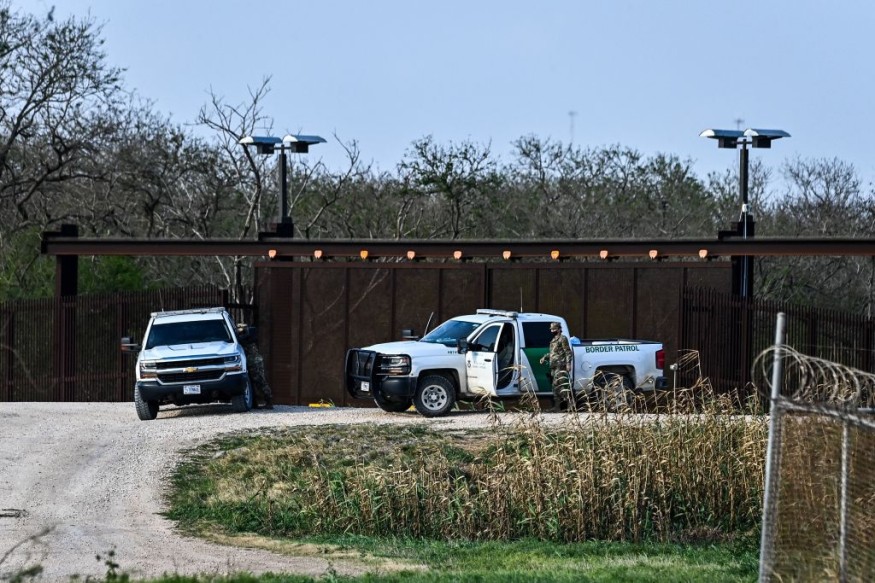Clashing Factions of Gulf Cartel in Mexico Get Tired of Killings, Agree to a Truce

Three of the warring factions of Mexico's Gulf Cartel have announced Monday, July 26, that they have reached an agreement on a truce, postponing the shootings and killings in the state of Tamaulipas.
Tamaulipas state police had confirmed the printed banners with slogans like "Long live Peace!" posted in the border city of Reynosa and other cities, Associated Press reported.
The banners were printed with red, white, and green letters like the colors in Mexico's flag and were signed by the Metros, the Scorpions, and the Reds, which were the three main factions involved in the decade-old turf war. It was unclear if the Cyclones, a fourth faction, was part of the agreement.
State police said four people had been apprehended on suspicion of hanging the banners from buildings and overpasses in over half a dozen cities across Tamaulipas.
One of the writings in the banner said they "have agreed to a truce of tranquility," and declared "our solidarity with the people, and with ideological principles consistent with keeping the peace."
They also conveyed a message that assured communities that they have a presence, to feel secure and "without any worry." It added that the Gulf Cartel's biggest priority is peace in the state and the wellbeing of its residents.
"We have families too," read one of the banners that also bore a picture of a dove with an olive branch. These messages were in contrast to usual Mexican drug cartel messages that are often accompanied by body parts.
Last month, the Gulf Cartel gunmen randomly killed 15 bystanders in Reynosa. The June 19 killings were reporetedly carried out by members of the Scorpions and the "Cyclones," a fourth faction of the Gulf Cartel, both based on the east of Reynosa, around Matamoros. Similar banners appeared in Matamoros, suggesting that the Cyclones may have been on board with the peace pact.
The two groups allegedly terrorize the crowd d of Reynosa as part of their campaign to challenge the Metros' control of the city.
READ NEXT : Mexico Government Confirms Gulf Cartel Clandestine Human Incineration Site Near Texas Border
Ongoing Violence in Some Areas in Mexico Due to Turf War of Mexican Drug Cartels
Meanwhile, some areas in Mexico also see violence due to the ongoing turf war of Mexican drug cartels wanting to control specific states, such as in Zacatecas.
Residents locked their doors and stayed inside their homes when they heard gunfire in the valley. One witness said that around 200 armed men had just looted a gas station.
Authorities found 18 bodies in San Juan Capistrano located in Valparaiso, Zacatecas on June 24, Anchorage Daily News reported.
The military has sent reinforcements earlier. However, the killings prevailed across Zacatecas. The continuous killings suggested that the head-on drug war launched in 2006 by former President Felipe Calderon did not manage to break the cycle of violence in Mexico.
The "hugs not bullets" approach of current President Andres Manuel Lopez Obrador has also not waned the killings in Mexico.
Valparaiso mayor Eleuterio Ramos noted that criminal groups fight over territory when the soldiers leave, as they know from experience.
Zacatecas has been an eye candy for Mexican drug cartels battling over due to its location between the drug production and consumers.
The previous head of the U.S. Drug Enforcement Administration for international operations, Mike Vigil, earlier said that clashing cartels are fighting to dominate the fentanyl market in Zacatecas. Fentanyl is the largest source of money for the drug cartels in the States.
The Gulf Cartel
The Gulf Cartel is one of Mexico's oldest and most powerful criminal groups before losing in recent years its territory over rivals, including its former enforcer faction, the Zetas.
The criminal activities of the Gulf Cartel can be dated back to 1984 when Juan Garcia Abrego was in control of the drug-trafficking business that his uncle formerly headed.
InSight Crime reported that the Gulf Cartel is still in control of a key criminal area in Tamaulipas that allows the group to continue trafficking large drug shipments across the U.S.-Mexico border.
This article is owned by Latin Post
Written by: Mary Webber
WATCH: Omar Trevino Morales: Last Zeta Cartel Leader - From WorthTheyHype
Subscribe to Latin Post!
Sign up for our free newsletter for the Latest coverage!

















